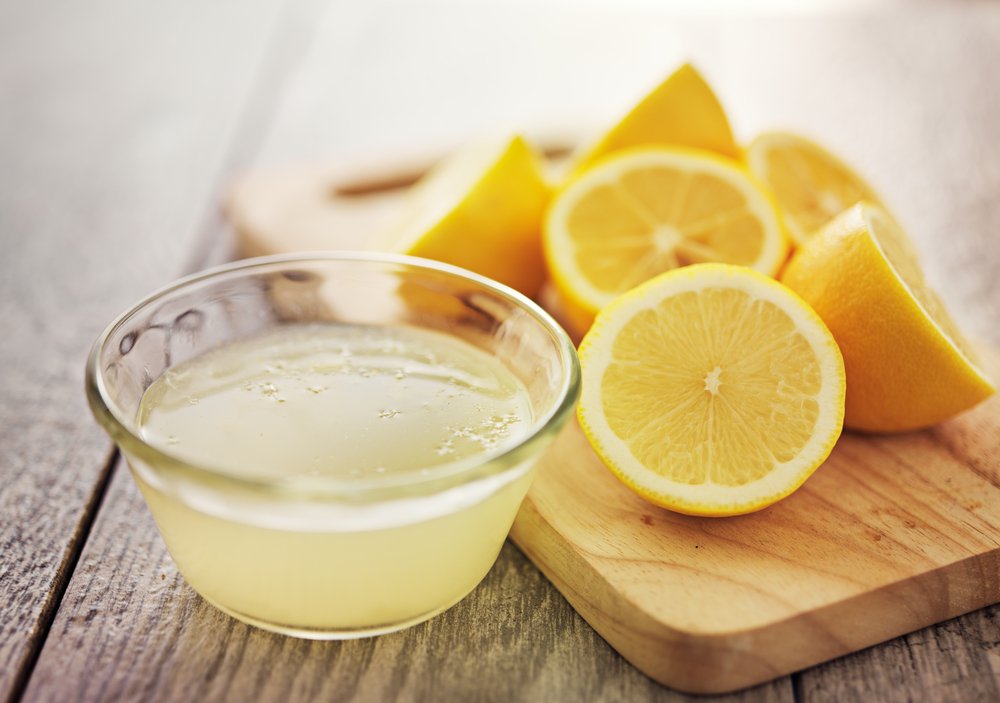The liquid that comes out from a squeezed lemon is commonly called lemon juice, although, many product companies today use lemon flavors in the mass production of their juices. The lemon extract is also used in beauty products to clear wrinkled skin and offer youthful skin.

The lemon juice is extracted from a fresh lemon fruit and has lots of potential benefits to the entire body and it’s a great source of Vitamin C.
According to Wikipedia, the lemon (Citrus limon) is a species of a small green tree in the flowering plant family Rutaceae, native to Asia, primarily Northeast India (Assam), Northern Myanmar or China.
Lemons provide flavor to baked goods, sauces, salad dressings, marinades, drinks, and desserts. They are also loaded with great nutritional value, needed for the total wellbeing of the body.
Nutritional Perks of Lemon Juice
Do you know that lemon juices are a powerful source of vitamin C, a rich antioxidant used in combating toxins? One squeezed lemon provides about 21% of a person’s daily value.
Like every other citrus fruit such as oranges, grapefruit, and limes, Lemons are a great source of flavonoids. These compounds found in lemon juices can help boost the immune system and combat disease.
Furthermore, lemons have few nutrients. For instance, Lemon infused water contains very little protein, fat, carbohydrate, and other minerals including potassium, folate, and some vitamin B.
Inference to the United States Department for Agriculture database, the nutrient breakdown for lemon water containing one 48g squeezed lemon {1} is as follows:
- 10.6 calories
- 18.6 milligrams (mg) of vitamin C, or 21% DV
- 9.6 micrograms (mcg) of folate, or 2% DV
- 49.4 mg of potassium, or 1% DV
- 0.01 mg of vitamin B-1, or 1% DV
- 0.01 mg of vitamin B-2, or 1% DV
- 0.06 mg of vitamin B-5, or 1% DV
Although a single glass does not seem to provide a lot of nutrients, lemon water is a healthful, low calorie, and low sugar beverage that can boost a person’s vitamin C intake.
The nutritional value of each glass of lemon juice depends on how much lemon juice it contains.
Lemon Juice For Healthy skin
Lemon Juice when used in the wrong quantity, can cause skin dryness and irritation. However, Lemon juice has the following properties for healthy skin
- Astringent qualities. Due to its high pH levels, lemon can decrease oil on the skin and reduce inflammation.
- Antifungal Properties. A 2014 study suggested lemon juice may have antifungal properties, including the ability to kill off Candida fungus strains on the skin.
- Glowing Skin. Lemon contains acids that can naturally glow up the skin, including age spots and acne scars. However, there are prescription creams that are more effective than lemon.
Benefits of Lemon Juice
Lowers the Risk of Kidney Stones
The kidney stones are very tiny lumps that are formed when waste products crystallize and build up in your kidneys. They are usually common and quite difficult to go away when diagnosed.
The citric acid found in lemon juice {2} can help prevent kidney stones by increasing urine volume and increasing urine pH, that is, creating a less favorable environment for a kidney stone to be formed. {3}
Based on findings, {4} a half-cup (4 ounces or 125 ml) of lemon juice per day may provide enough citric acid to help prevent stone formation in people who have already had them.
Some recent research also discovered that lemonade effectively prevented kidney stones, but the results have been mixed. Other studies have shown no effect (5 6, 7, 8).
However, more well-analyzed studies are needed to examine if lemon juice affects kidney stone formation (9, 10, and 11).
Powerful Sources of Antioxidants and flavonoids
Lemon juices are packed with vitamin C, a rich antioxidant, and are a source of plant compounds called flavonoids, which provides antioxidant and anti-inflammatory effects for the body system.
Antioxidants are powerful compounds that help protect the body’s cells from damage. To drastically reduce cell damage, antioxidants lower the risk of many health conditions, including cardiovascular disease, diabetes, obesity, and cancer.
Citrus flavonoids also reduce inflammation in the body.
Research, {12} has joined chronic inflammation with increased oxidative stress and the risk of certain health conditions, including arthritis, diabetes, autoimmune conditions, and cancer.
Vitamin C is also an important 13 for immune system function, wound healing, and helping the body absorb iron from foods.
Fights Against Anemia
Iron deficiency anemia is often common. This occurs when you don’t get enough iron from the foods you consume daily.
However, lemons contain some iron, but they prevent anemia by ensuring the adequate absorption of iron from plant foods (14, 15).
The gut absorbs iron from meat, chicken, and fish (known as heme iron) very easily, while iron from plant sources (non-heme iron) is not as easy as the other. However, this absorption can be greatly improved by consuming an adequate amount of vitamin C and citric acid.
Boost Digestive Health
All lemons are made up of about 10 percent carbs, mostly in form of soluble fiber and simple sugars (glucose).
The main fiber in lemon juice is pectin, a form of soluble fiber linked to multiple health benefits.
Soluble fiber can improve gut health and slow the digestion of sugars and starches. These effects may result in reduced blood sugar levels (16, 17, 18, and 19).
Furthermore, to obtain the amazing benefits of fiber from lemons, you need to eat the pulp. People who drink lemon juice, without the fiber found in the pulp, will miss out on the benefits of the fiber.
Disclaimer: The above information published in this article is solely meant for informational and educational purposes only. The article written/published does not intend to diagnose, treat or cure any disease and should not be treated as medical advice.






